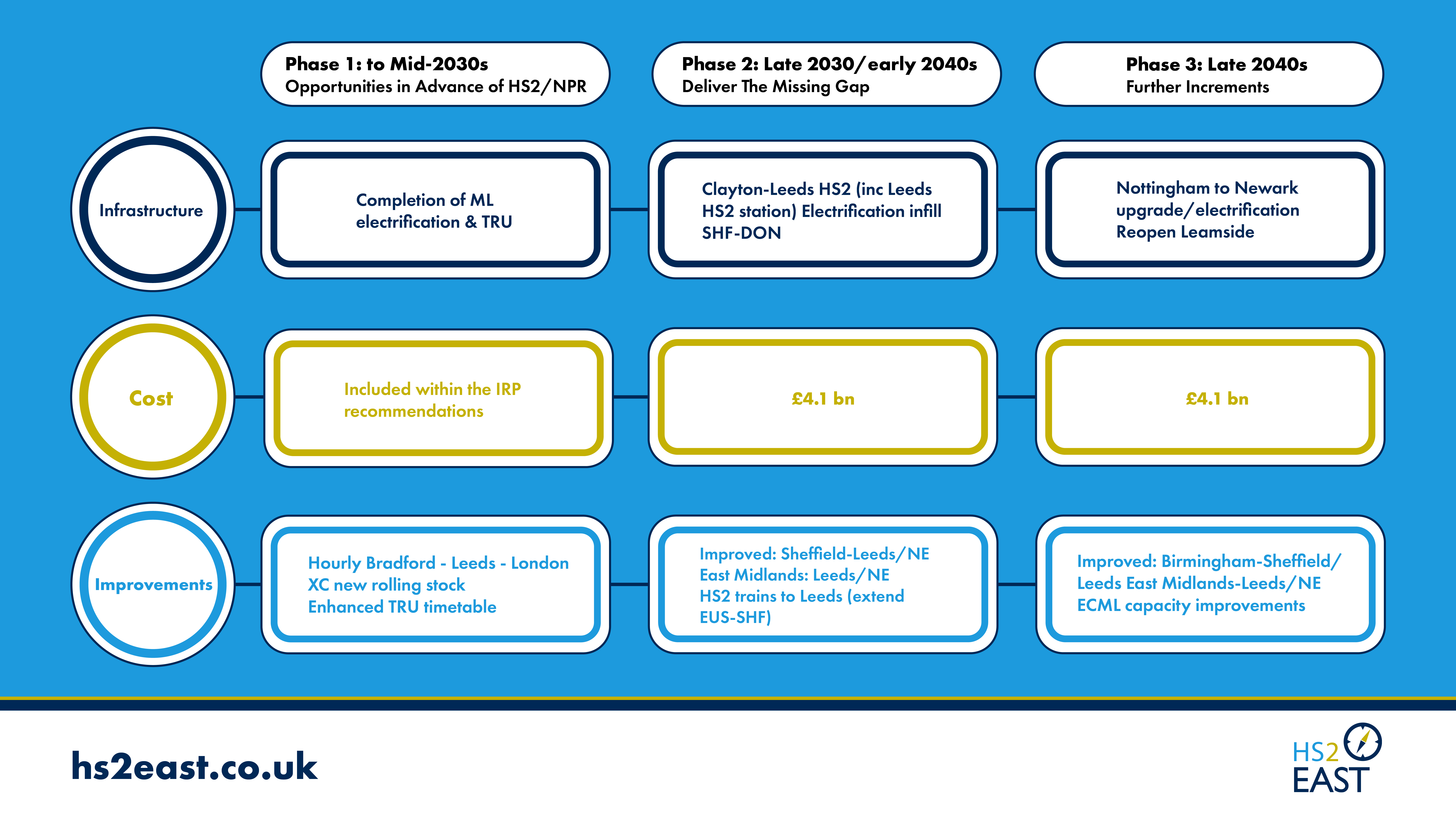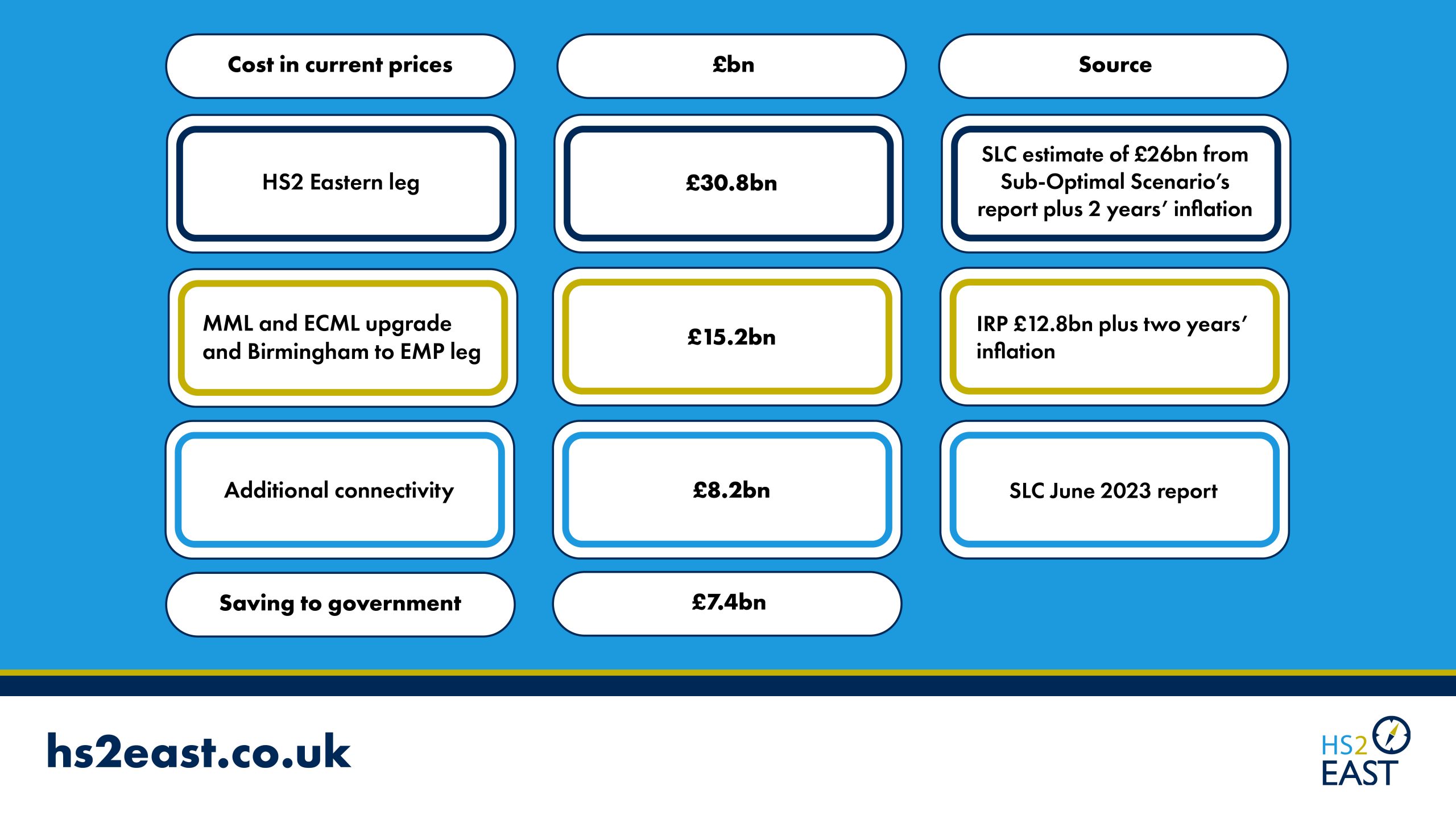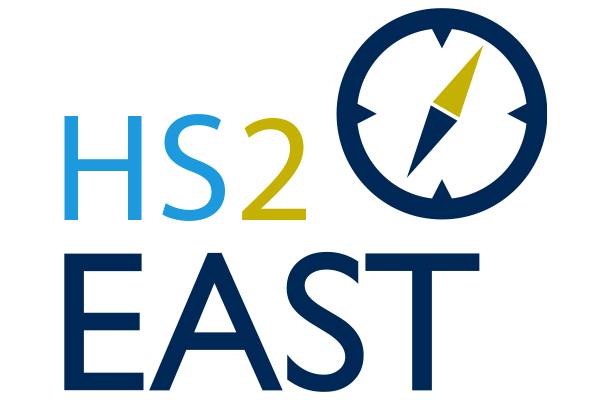North and Midlands leaders unite behind proposals to link regions through high-speed rail and improved connectivity
Regional mayors and council leaders from across the North and Midlands have united behind a new report which identifies how their cities, towns and communities can be better connected by rail, and at a reduced cost compared to the original HS2 proposals for the east of the country.
The three phases incrementally build on the proposals within the government’s Integrated Rail Plan published in November 2021 by offering much-improved inter-city and inter-regional connectivity.
The three phases are estimated to cost just over £8 billion to deliver, and would represent a £7.4 billion saving on the forecasted cost of delivering the full eastern leg of HS2 as initially proposed.
Leeds City Council Leader James Lewis and Nottinghamshire County Council Leader Ben Bradley MP, joint co-chairs of the HS2 East partnership said:
“The North and Midlands desperately need the inter-city and inter-regional rail connectivity that will bolster our post-pandemic economic recovery and growth, better connecting our communities and bringing jobs and opportunities within easier reach.
“The Integrated Rail Plan will deliver major improvements to the overall national rail network, but it is the vital inter-city and inter-regional connections within the North and Midlands which will offer the greatest benefits to our communities in terms of economic uplift/benefits, along with encouraging use of sustainable travel and reducing our carbon impact.”
Three-phase approach
The HS2 East group’s proposals are based on three phases:
- Phase 1: Ahead of HS2 / Northern Powerhouse Rail: To be delivered immediately and into the mid 2030s, this has already been budgeted for in existing schemes so comes at no extra cost. It would include completion of full Midland Main Line electrification, some new/increased/re-introduced services, including a second hourly fast Sheffield-Leeds service on the existing line. With the addition of the infill electrification from Sheffield to Moorthorpe (South Kirkby) to connect with the East Coast Mainline to Leeds.
- Phase 2: Deliver the missing gap: To be delivered between the late 2030s to early 2040s, these improvements would cost £4.1 billion and would include the upgraded / new high speed rail line between Sheffield and Leeds along with a new ‘T’ shaped station in Leeds, including the delivery of the originally proposed HS2 route between Clayton junction and Leeds to allow HS2 trains to be extended from Sheffield to Leeds, and an upgraded East Coast Main Line between Doncaster and Leeds and up to Newcastle as per the IRP.
- Phase 3: Further increments: To be from the late 2040s onwards and delivered at a cost of £4.1 billion, this would include upgrading and electrifying the Erewash Valley line, upgrading Nottingham-Newark, and reopening the Leamside Line to enable freight to be diverted off the East Coast Main Line.
Overall, the phases would deliver:
- Faster journey times from Birmingham to Leeds and Birmingham to Sheffield, York and the North East.
- Much improved connectivity between the West and East Midlands, Chesterfield, Sheffield, Leeds and the North East.
- Increased capacity in Leeds Station with the potential to transfer some local services into the new T-shaped station, improving performance across the country given the station’s key role in the national network.
- Improved performance and journey times between Sheffield-Wakefield-Leeds services as a result of electrification.
- Additional capacity on the East Coast Main Line, leading to improved journey times to the North East and increased capacity north of York for long distance and local services.
- Improved journey time from the North East to London, as committed to in the IRP.
- Clarity around safeguarded land. This includes the release of Chesterfield’s Staveley Depot site for development, clarity around safeguarded land in Leeds, removal of safeguarding between East Midlands Parkway and Clayton junction.
- More flexible infrastructure to accommodate future services requirements.
Leaders of the HS2 East group have contacted government to discuss the study and seek agreement on how the proposals can be incorporated into the Terms of Reference for the Integrated Rail Plan Study looking at how to bring HS2 trains to Leeds and Leeds Station Capacity.
Cllrs Lewis and Bradley said: “By delivering these improvements in phases we can also realise the benefits sooner than the original proposals for HS2’s eastern leg, and we hope to work with government to discuss how we can achieve these for the benefit of the 13 million people living in our regions.”
Read the report at: https://hs2east.co.uk/hs2-east-slc-rail-report-july-2023/
 The three phases recommended in the report, which is backed by leaders across the North and Midlands
The three phases recommended in the report, which is backed by leaders across the North and Midlands

The estimated cost of the proposals, which is £7.4 billion saving on the full HS2 eastern leg.
